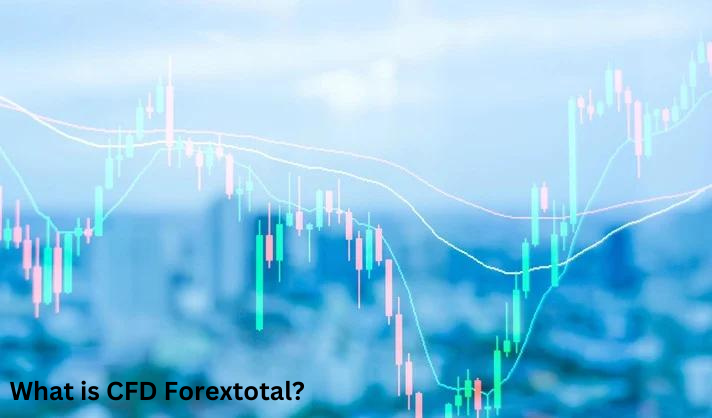What is CFD Forextotal?
Introduction of CFD Forextotal
CFD forex is short for contract for difference on foreign exchange. It is a contract between two parties, typically a broker and a trader, where the broker agrees to pay the trader the difference between the current value of a currency pair and its value at the end of the contract. If the difference is negative, the trader pays the broker.
This type of financial instrument is popular among traders because it allows them to speculate on the movements of currency pairs without actually owning the underlying asset. This means that traders can take advantage of both rising and falling markets.
www.robomarkets.com/ offers a variety of trading tools, including economic calendars and trading signals, to help traders stay up-to-date on market events and make informed trading decisions.
CFD forex trading is conducted through an online platform that allows traders to buy and sell contracts in real-time. Most platforms also offer tools and features that make it easy to track your positions and manage your risk.
Understanding CFDs
CFDs, or contracts for difference, are a type of financial derivative that allows you to speculate on the price movement of an underlying asset without actually owning the asset.
CFDs are traded on margin, which means you only need to put down a small deposit – or margin – to open a position. This makes CFDs an attractive proposition for investors who want to get exposure to an asset but don’t have the capital to outright purchase it.
However, because you don’t own the asset when you trade CFDs, you also don’t benefit from any positive price movements. In other words, you can only make money if the price of the underlying asset falls.
CFDs are a complex financial product and come with a high risk of losing money rapidly due to leverage. You should consider whether you understand how CFDs work and whether you can afford to take the high risk of losing your money.
How to Trade with CFDs
When you are ready to start trading with CFDs, there are a few things that you need to know. This guide will teach you about the basics of CFD trading, including how to find the right broker and how to place trades.
What is a CFD?
A CFD, or contract for difference, is a type of derivative instrument that allows you to speculate on the price movement of an underlying asset without actually owning the asset itself. You can trade CFDs on a wide range of assets, including forex, stocks, commodities, indices, and more.
How do CFDs work?
When you trade a CFD, you are essentially betting on the price movement of the underlying asset. If you think the price will rise, you buy (or go long); if you think the price will fall, you sell (or go short). Your profit or loss depends on the difference between the price at which you enter your position and the price at which you close it out.
What are the benefits of trading with CFDs?
CFD trading offers a number of advantages over other types of trading:
CFDs allow you to trade on leverage, meaning that you can control a larger position than what your account balance would otherwise allow. This can magnify both your profits and your losses; so be sure to use leverage wisely.
CFDs are traded on margin – meaning that you only need to put down a small
Types of Instruments For Trading
There are three main types of financial instruments that are used for trading: equity, debt, and derivatives. Each type of instrument has its own unique characteristics and risks.
Equity instruments are ownership interests in a company, such as stocks or mutual funds. Equity investors typically seek to earn a return through capital appreciation, which is the increase in the value of the investment over time. Equity instruments are also sometimes used to hedge against losses in other investments.
Debt instruments are loans that must be repaid with interest. Common types of debt instruments include bonds, Treasuries, and CDs. Debt investors typically seek to earn a return through interest payments. Debt instruments can also be used to hedge against losses in other investments.
Derivatives are financial contracts whose value is derived from the underlying asset, such as commodities, currencies, or stocks. Common types of derivatives include futures contracts, options contracts, and swaps. Derivative investors typically seek to earn a return through price appreciation or by collecting premiums. Derivatives can also be used to hedge against losses in other investments.
Risk Management in Forex
When it comes to trading forex, risk management is essential. Without proper risk management, you could end up losing all of your money.
There are a few different ways to approach risk management in forex. The first is to use a stop-loss order. This is an order that you place with your broker that will automatically sell your position if the market moves against you by a certain amount.
The second way to manage risk is to use leverage carefully. Leverage allows you to trade more money than you have in your account. While this can help you make more money, it can also lead to bigger losses if the market moves against you.
Finally, you need to be aware of the risks inherent in the forex market. These include things like political and economic instability, currency devaluations, and interest rate changes. By understanding these risks, you can be better prepared for them and make sure that your trading strategy takes them into account.
Conclusion
We hope that our guide on CFD Forextotal has been helpful in getting you started with this exciting new way to trade forex. CFD Forextotal is a great way to get started with forex trading, and we believe that it has a lot of potential for those who are looking to make some serious profits. With the right approach, anyone can be successful with this type of trading. Thanks for reading and good luck!



